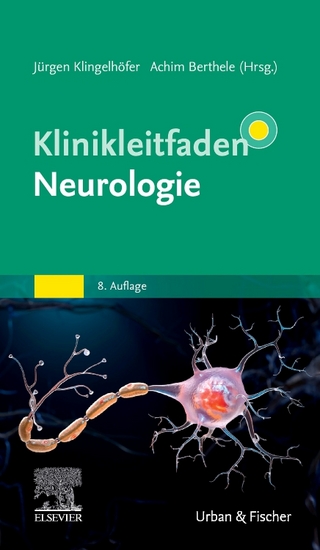
Neurobiology of Ischemic Brain Damage
Elsevier Science Ltd (Verlag)
978-0-444-89603-2 (ISBN)
- Titel ist leider vergriffen;
keine Neuauflage - Artikel merken
In the eight years since the publication of Volume 63 of "Progress in Brain Research", on this subject, developments in the research field have been very fast. For example, receptor physiology and pharmacology is now an intensively studied field, and the excitotoxic hypothesis of cell death is commonly accepted. Furthermore, it is recognized that ischemia gives rise to a sustained depression of overall protein synthesis, yet leads to the expression of dormant genes and to the synthesis of new proteins. In view of this development, this volume focuses on the cellular and molecular aspects of ischemic brain damage. The book should be of interest to all those interested in the pathophysiology of ischemic and traumatic brain damage.
Chapter 1 - A new perspective on ischemic brain damage (B.K. Siesjoe). Section 1. Temperature, Acid-Base Homeostasis, and Microcirculation. 2. Temperature modulation of ischemic brain injury - a synthesis of recent advances (M.D. Ginsberg, M.Y.-T. Globus, W. D. Dietrich, R. Busto). 3. Acidosis-related brain damage (B.K. Siesjoe, K. Katsura, P. Mellergard, A. Ekholm, J. Lundgren, M.-L Smith) 4. Cerebral ischemia: the microcirculation as trigger and target (U. Dirnagl). Section II - Free Radicals and excitatory amino acids. 5. Evaluation of the concomitance of lipid peroxidation in experimental models of cerebral ischemia and stroke (B.D. Watson). 6. Role of superoxide dismutase in transgenic mice following focal cerebral ischemia (P.H. Chan, C.J. Epstein, H. Kinonchi, S. Imaizumi, E. Carlson and S.F. Chen). 7. Glutamate receptor transmission and ischemic nerve cell damage: Evidence for involvement of excitotoxic mechanisms (N.H. Diemer, E. Valente, T. Bruhn, M. Berg, M.B. Jorgenson, F.F. Johansen). 8. Antagonism of the NMDA and non-NMDA receptors in global versus focal brain ischemia (W. Pulsinelli, A. Sarokin, A. Buchan). 9. NMDA receptors and AMPA kainate receptors mediate parallel injury in cerebral cortical cultures subjected to oxygen-glucose deprivation (D. W. Choi). Section III. Polyamine and Protein Metabolism. 10. Ischemia-induced disturbances of polyamine synthesis (W. Paschen, M. Cleef, G. Roehn, M. Mueller, A.E.I. Pajunen). 11. Disturbances of cerebral protein synthesis and ischemic cell death (K.-A. Hossmann). 12. Protein phosphorylation and the regulation of mRNA translation following cerebral ischemia (T. Wieloch, K. Bergstedt, B.R. Hu). Section IV. Selective Gene Expression. 13. Stress protein and proto-oncogene expression as indicators of neuronal pathophysiology after ischemia (T.S. Nowak Jr., 0.C. Osborne, S. Suga). 14. Possible involvement of C-fos translational regulation in the interaction between glutamate and neurotrophic factors in brain ischemia (K. Hisanaga, S.M. Sagar, F.R. Sharp, K. Kogure). 15. Selective gene expression after brain ischemia (K. Abe, K. Kogure). 16. Molecular pathology of head trauma - altered BAPP metabolism and the aetiology of Alzheimer's disease (S.M. Gentleman, D.I. Graham, G.W. Roberts). 17. Role of phospholipase A2 and membrane-derived lipid second messengers in membrane function and transcriptional activation of genes: implications in cerebral ischemia and neuronal excitability (N.G. Bazan, G. Allan, E.B. Rodriguez de Turco). Section V. Maturation Phenomena. 18. Presynaptic terminals in hippocampal gliosis following transient ischemia in the Mongolian gerbil (T. Kirino). 19. Long-term structural and biochemical events in the hippocampus following transient global ischemia (H. Onodera, H. Aoki, K. Kogure).
| Erscheint lt. Verlag | 31.5.1993 |
|---|---|
| Reihe/Serie | Progress in Brain Research ; v. 96 |
| Zusatzinfo | index |
| Verlagsort | Oxford |
| Sprache | englisch |
| Themenwelt | Medizin / Pharmazie ► Medizinische Fachgebiete ► Neurologie |
| Naturwissenschaften ► Biologie ► Genetik / Molekularbiologie | |
| Naturwissenschaften ► Biologie ► Humanbiologie | |
| Naturwissenschaften ► Biologie ► Zellbiologie | |
| Naturwissenschaften ► Biologie ► Zoologie | |
| ISBN-10 | 0-444-89603-1 / 0444896031 |
| ISBN-13 | 978-0-444-89603-2 / 9780444896032 |
| Zustand | Neuware |
| Informationen gemäß Produktsicherheitsverordnung (GPSR) | |
| Haben Sie eine Frage zum Produkt? |
aus dem Bereich


